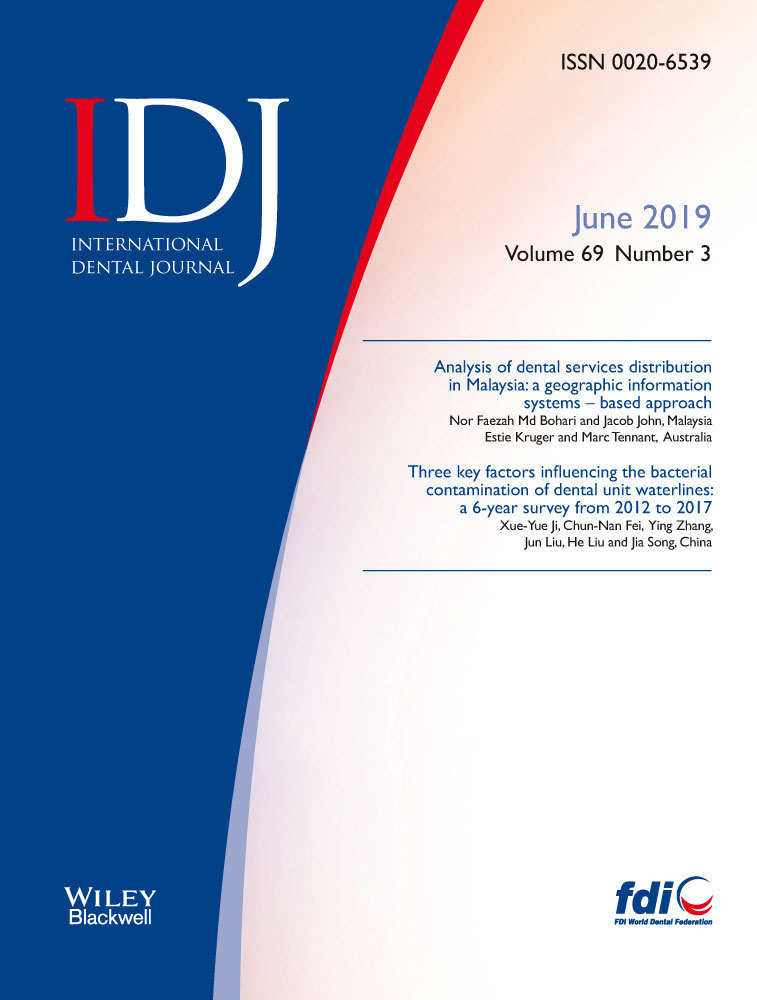Practice-based research agenda priorities selected by patients: findings from a dental practice-based research network
Abstract
Objectives
This study aimed to identify (i) which practice-based research agendas had the highest priority among patients and (ii) whether priorities varied significantly with patient age and gender.
Methods
We conducted a cross-sectional questionnaire survey of 482 patients from 11 outpatient dental practices. The patients were shown 31 items concerning practice-based research questions and asked to select the three items in which they were most interested. We generated a rank order of the 31 items. Subsequently, the 31 items were categorised into 10 groups, and we performed subgroup analyses according to age and gender using chi-square tests.
Results
“Age-specific care to maintain oral health (n = 86)” was rated as the most interesting research question. When data were analysed according to age, patients less than 40 years old rated “Orthodontic treatment”, “Esthetic dental care” and “Topical fluoride application” as interesting questions significantly more frequently than did patients 40 years old or older (P < 0.01)?, while patients 40 years old or older rated “Regular dental check-ups”, “Dental implant”, “Diet and food” and “Social health insurance” as more interesting than did patients less than 40 years old (P < 0.05). When data were analysed according to gender, female patients rated the questions on aesthetic dental care as more interesting than did male patients (P < 0.01), whereas male patients rated questions on toothbrushing as more interesting than did female patients (P < 0.05).
Conclusions
Patients assessed “Age-specific care to maintain oral health” as the highest priority among a broad range of research topics. This study also quantified patient priorities for research agendas according to age and gender group. Designing future research with these priorities in mind will promote patient-centred evidence.




